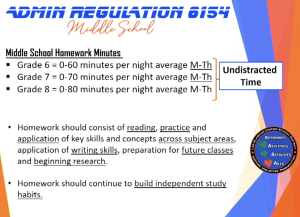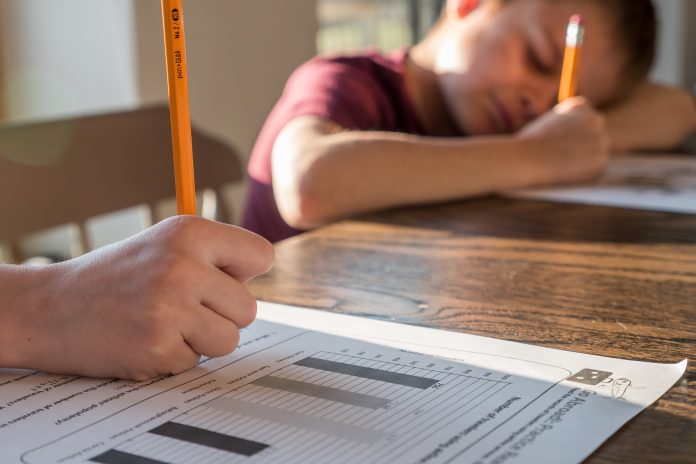Weeks into the 2022-23 school year, students in the Los Alamitos Unified School District are likely already tackling their first homework assignments.
But this year, the workload could be lighter than in previous years. That’s because the district adopted a new homework policy over the summer that aims to strike a balance between student wellness and academic rigor.
After months of looking at research, reviewing feedback from students and staff, and consulting with Challenge Success, a Stanford University-affiliated program, the district concluded that 6th-12th grade students were spending between 3.5 to five hours a night on homework. That resulted in students experiencing more academic stress and a lack of balance between school and other parts of their lives.
Spotlight Schools previously reported on the new policy in June, but new details came out at the August 16 Los Alamitos Unified School District Board of Education meeting.
Deputy Superintendent Ondrea Reed gave an overview of the new policy at the meeting. (See presentation from the 39 minute mark through the one hour and 18 minute mark.)

This slide from a presentation made to the Los Al Unified Board of Trustees explains the policy in greater detail.
“We’re not eliminating homework,” Reed said. “We’re really following research to make sure that our students still keep the competitive edge, are gaining all the knowledge from the courses that we offer … but at the same time keeping student wellness, learning and engagement at the forefront of our thinking.”
“There’s a lot of false information out there,” Los Al USD Superintendent Dr. Andrew Pulver said at the meeting. “We have to break down these myths that more homework means smarter kids … the research just doesn’t support that.”
Here are some notable changes in the new policy:
- No homework assigned over the weekend for TK – 8th graders.
- No homework assigned over school breaks or projects due the week after a school break for all grade levels.
- Guidelines on the maximum number of minutes of homework students are assigned each night. For 1st – 8th grade, that translates to roughly ten minutes per grade level per night. So a first grader’s limit is between 0-10 minutes a night of homework. By the time a student is in eighth grade, it’s between 0-80 minutes a night.
- High school homework minutes are based on the type of classes students enroll in but the research suggests the optimal time is 1.5 to 2.5 hours a night.
- Jiji, the online math program, will need to be part of the calculation for the total number of minutes for a student’s nightly homework.
- Middle school teachers are working to create a “conflict calendar” to make sure students aren’t loaded up with tests or projects around the same time.
- Parents of high school students enrolled in two or more Advanced Placement classes will receive a letter advising them to review the schedule to make sure it’s a workload that’s manageable for their student.
One point Reed made was the importance of students completing their homework in an environment that is free from distractions. That means students unplugging from things like TikTok, Minecraft, and YouTube.
“So this is where we’re really calling our parents as partners, to really help us provide that at home learning space, where a child can be free of the TV, be free of their phone,” Reed said and suggested setting a timer to break up a 60 minute homework assignment into 20 minute increments.
Reed also stressed the district realizes every student is different and what may work for one person, may not be a good fit for another child. “We know there’s not a one-size fits all approach and will rely on parents to guide the process,” Reed said.
Reed said the big picture goal of the homework policy isn’t just to create consistency across classrooms and campuses in terms of the amount of time students spend on homework.
“More than the minutes, it’s to reframe how we think about the options for our kids and their schedule,” Reed said in a phone interview and added later that parents need to “be realistic about what we want for our kids to thrive.”
Reed expects the homework policy to develop and change with parent, student and staff input. “We’re in year one,” she said. “This will be an evolving process.”
For more local education news, visit SpotlightSchools.com.

